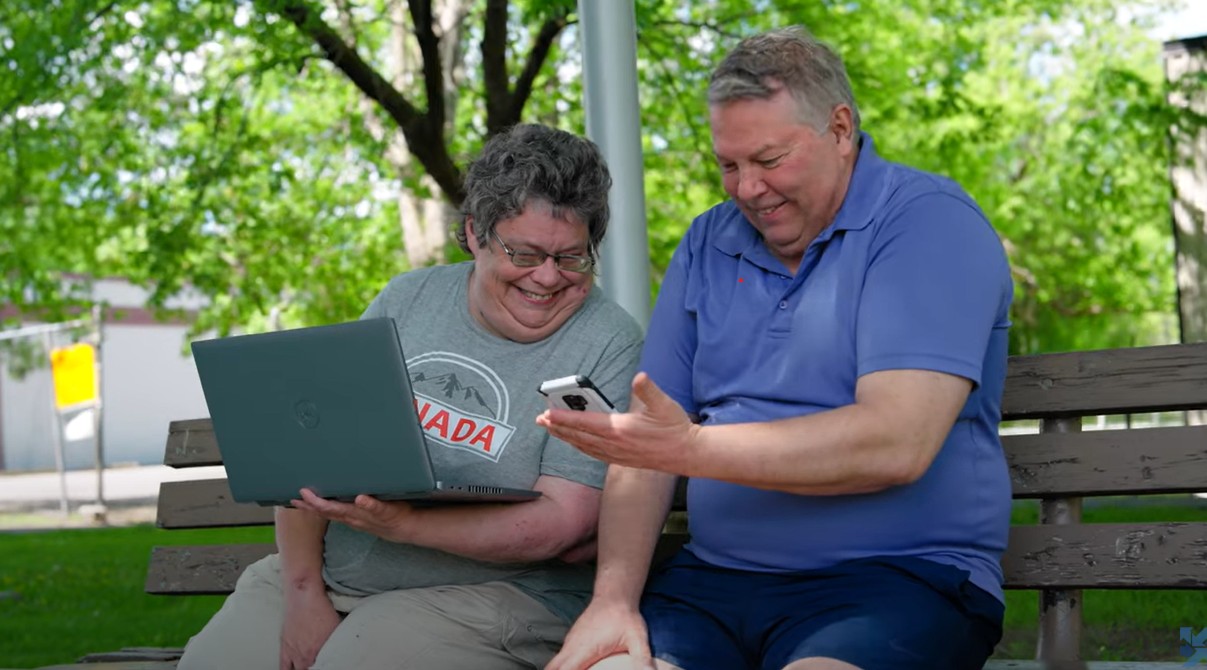As our world becomes increasingly digital, it’s hard for many to imagine functioning without Wi-Fi. But not everyone has the luxury of accessing the internet from home.
A 2020/2021 survey by National Capital FreeNet, an Ottawa-based internet service provider, found that over 22 per cent of tenants living at Ottawa Community Housing (OCH) properties did not have internet access at home. For those struggling to make ends meet, the survey states, the average monthly cost of $60 to $100 for internet is simply too much.
The results were concerning for staff at OCH who knew demand for these services was growing amidst the pandemic, shifting school, work and social activities online.
Between March 2020 and May 2021, Ontario schools were closed for a total of 20 weeks. A mix of hybrid learning continued until January 2022 when in person learning officially resumed. Between April 2020 and June 2021, 30 per cent of workers surveyed by Statistics Canada said they were performing most of their job duties from home.
But doing so without reliable internet access is nearly impossible.
While there is no internationally recognized “right to internet access” it is increasingly becoming understood that the internet is a key player in the accessibility of other human rights.
“As schools shifted to online learning and essential services moved to virtual platforms, those without dependable connectivity faced significant barriers,” OCH states in a release. “Children struggled to participate in classes, job seekers found it difficult to apply for positions, and many residents had trouble booking crucial appointments. This digital divide widened, intensifying inequalities within the community.”
Recognizing the divide that internet access creates, OCH, along with National Capital FreeNet, the Canadian Registration Authority, and Hiboo Networks (a Hydro Ottawa subsidiary) launched a pilot project to provide free and reliable internet access in the common areas of two OCH buildings.
Beginning in December 2024, free Wi-Fi was installed in the common areas of the apartment buildings located at 251 and 255 Donald Street in Ottawa’s Overbrook neighbourhood.
“True community well-being means breaking down the barriers that isolate people and limit their opportunities,” Natalie Drouin, Manager of Community Development at OCH, says. “CommuniFi shows what’s possible when we bring the right partners together to deliver practical, innovative solutions that meet people where they are. This project is a real step toward social justice and inclusion and proof that housing can be a platform for empowerment.”
In the first eight months, OCH says there have been over 2,350 unique devices connected to the network, proving the pilot’s success.
The organization has also provided other digital literacy programs for its residents. In April a tax clinic was held in the lobby of both buildings where 59 residents were able to file their tax returns on site with the help of volunteers.
“Before CommuniFi, I had to rely on a neighbour’s hotspot or go to a library,” one tenant says. “Now I can check my email or help my kids with schoolwork right in the building.”
The success of the initiative has OCH and its partners looking to expand the project to other buildings. National Capital FreeNet says it is actively exploring opportunities for expansion.
“The vision is clear,” the release states, “reliable, affordable internet access a permanent feature of OCH communities delivered in a way that’s sustainable, community-driven, and guided by the real needs of tenants.”

